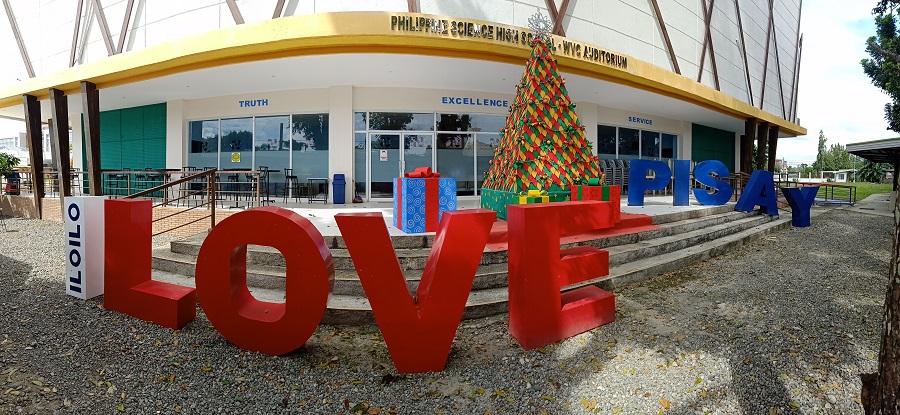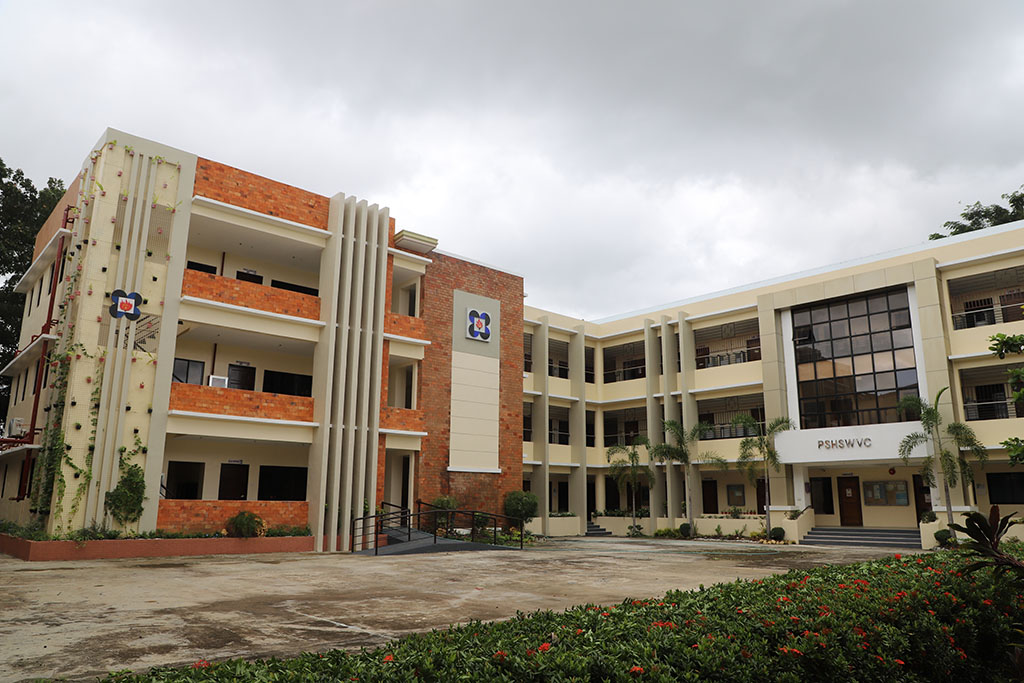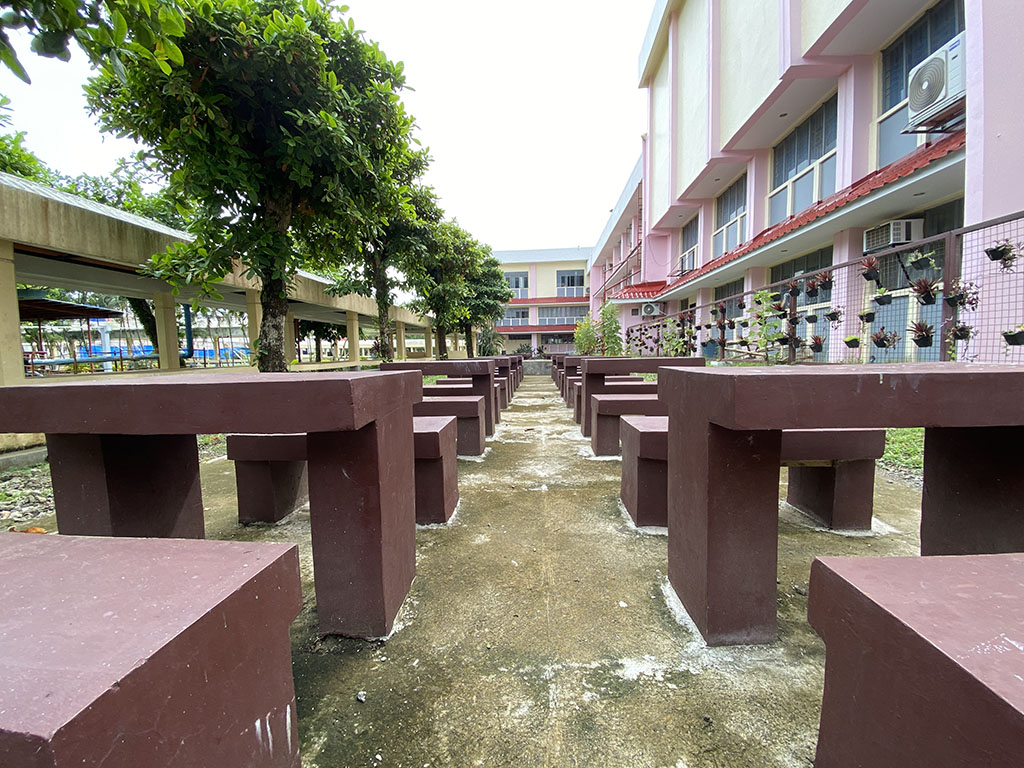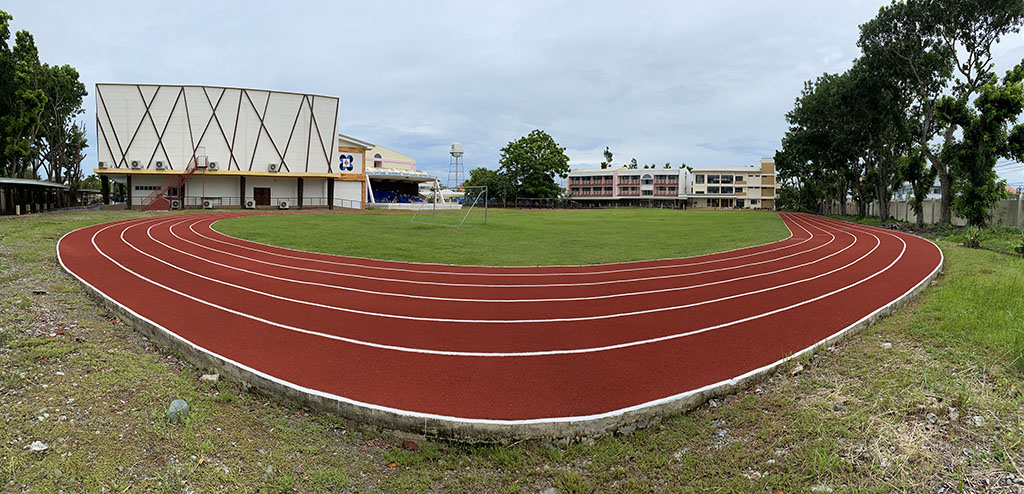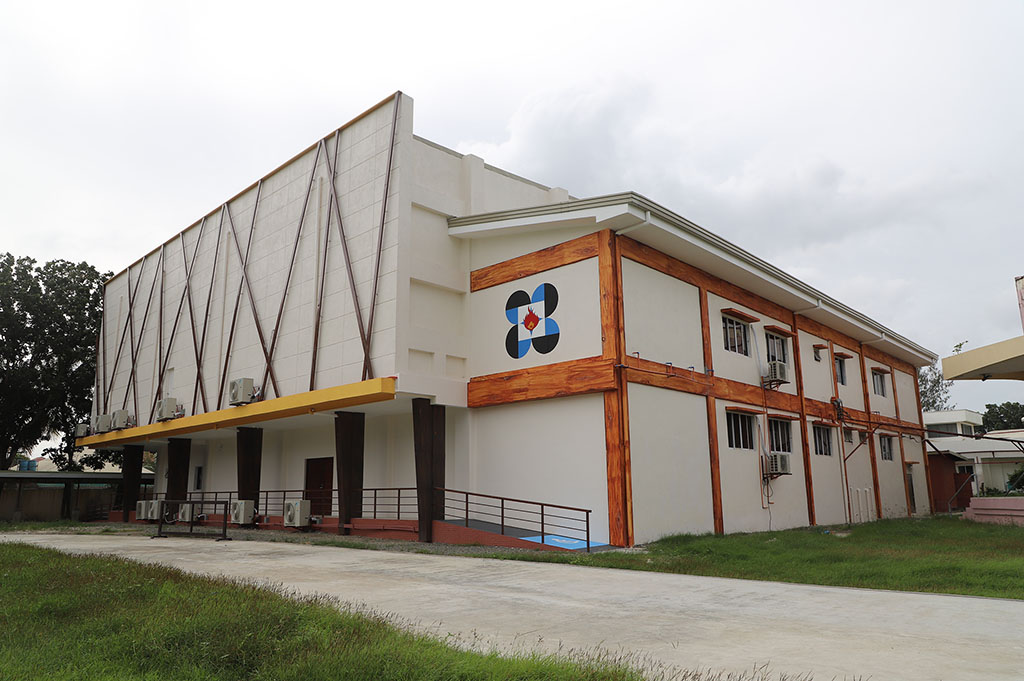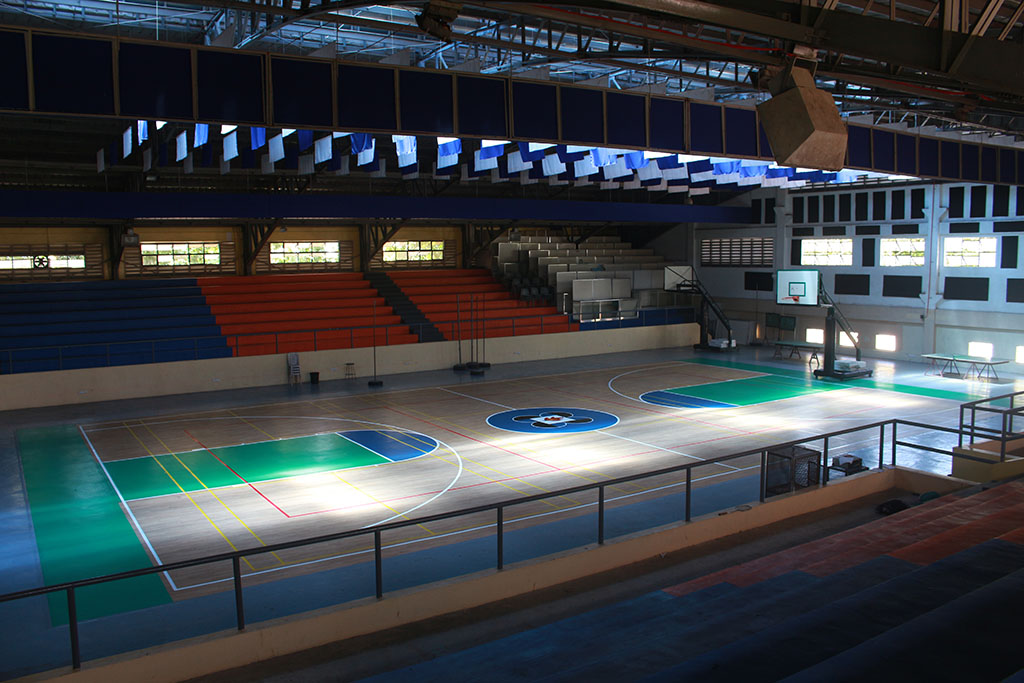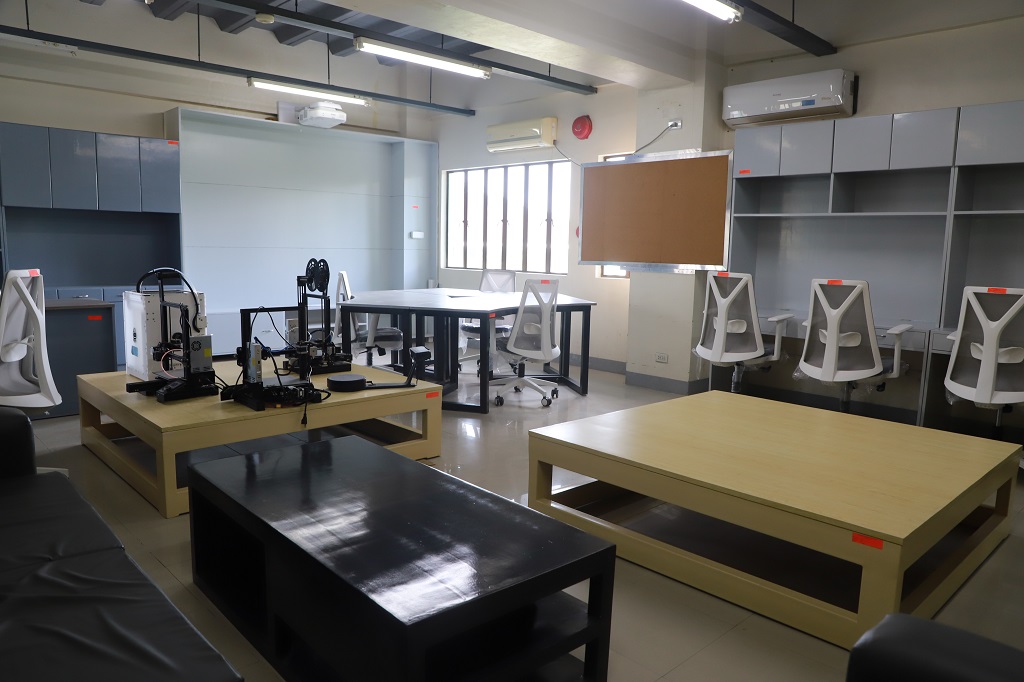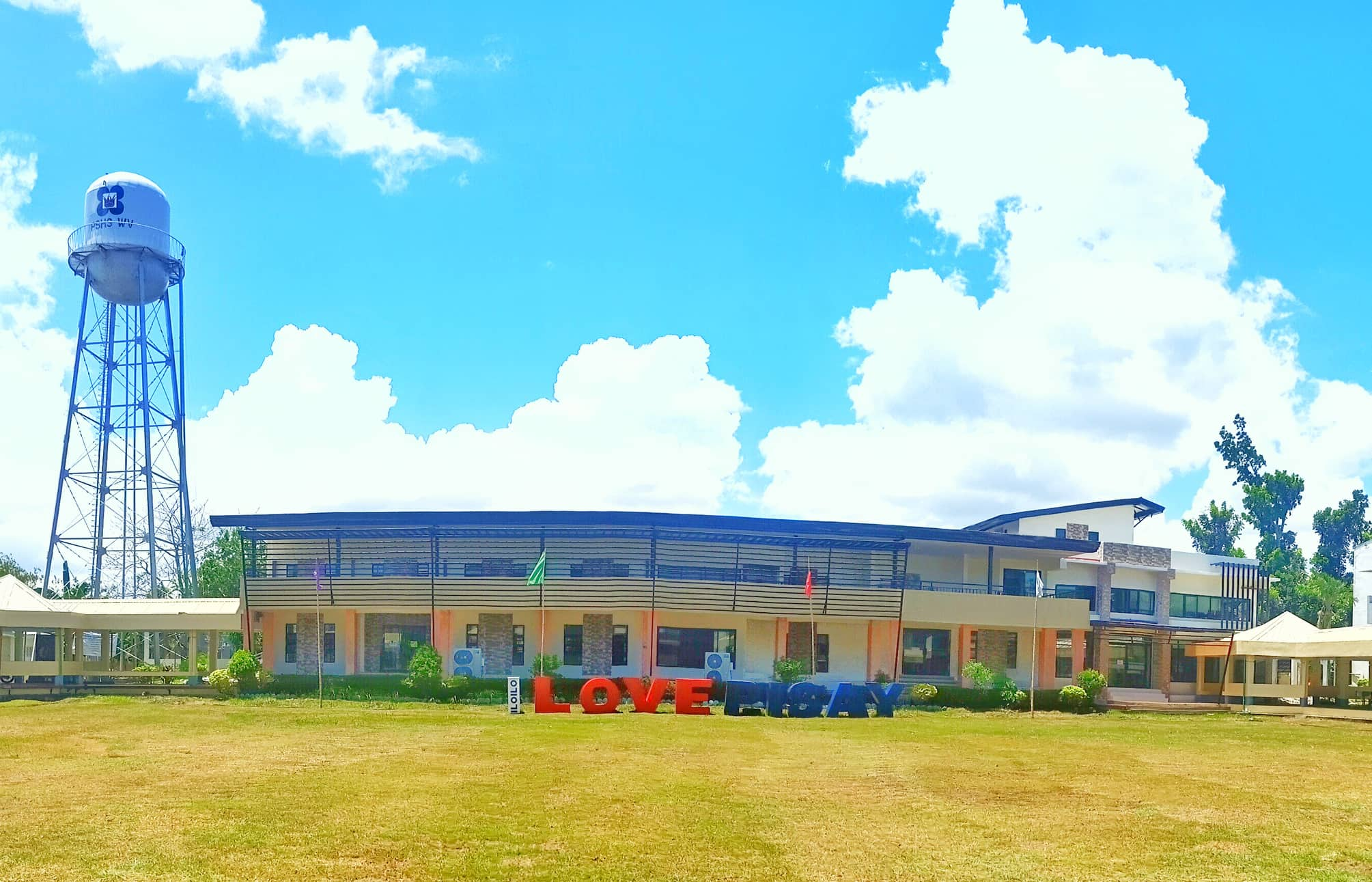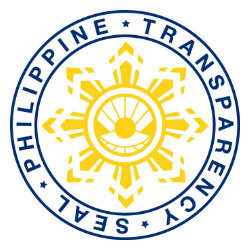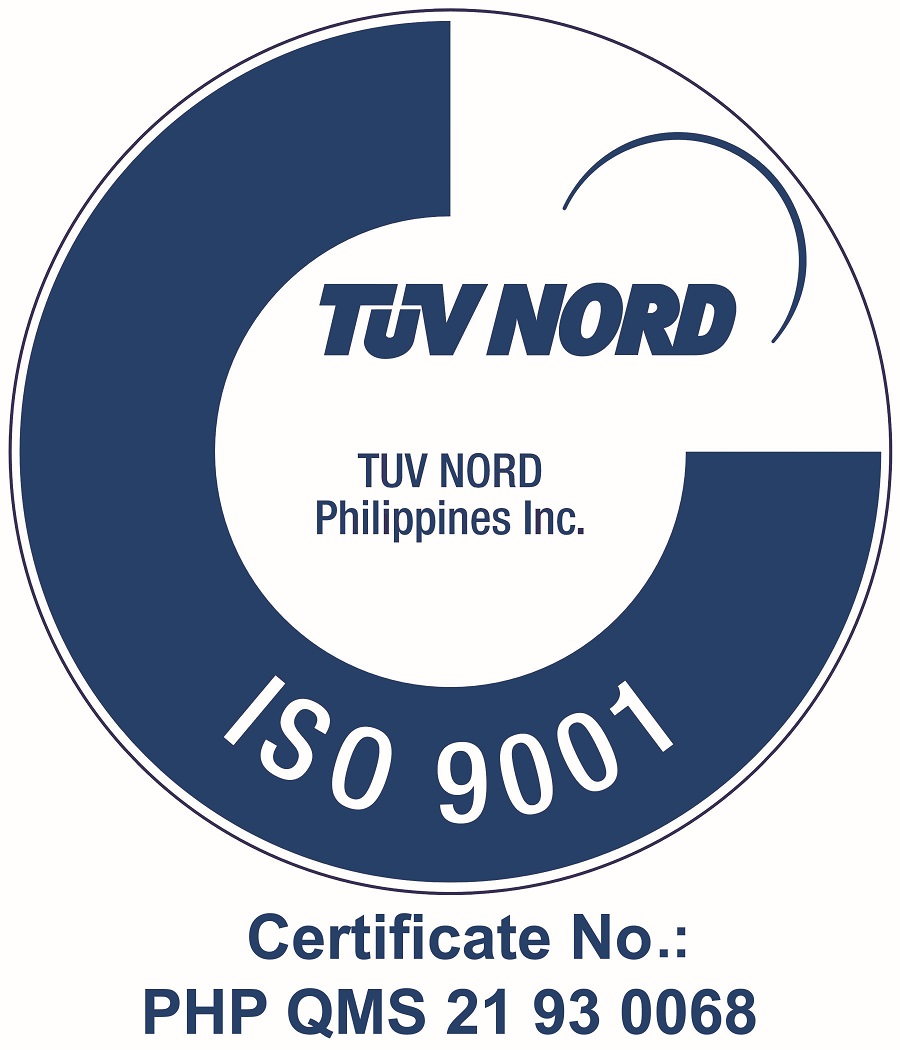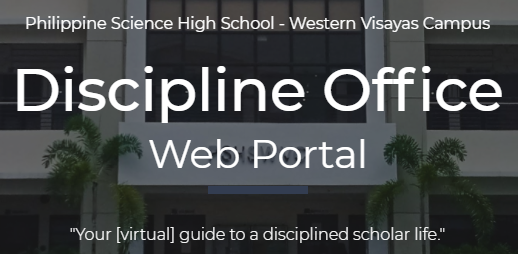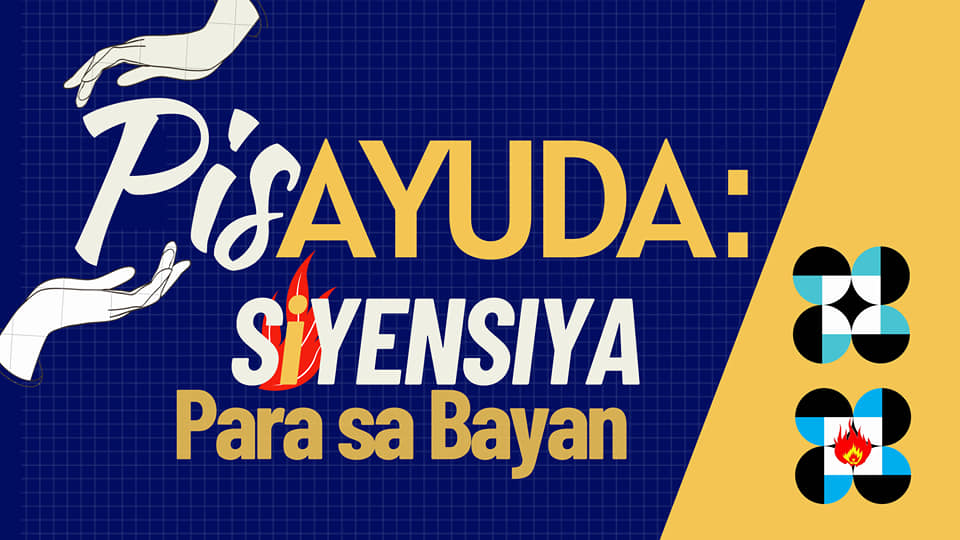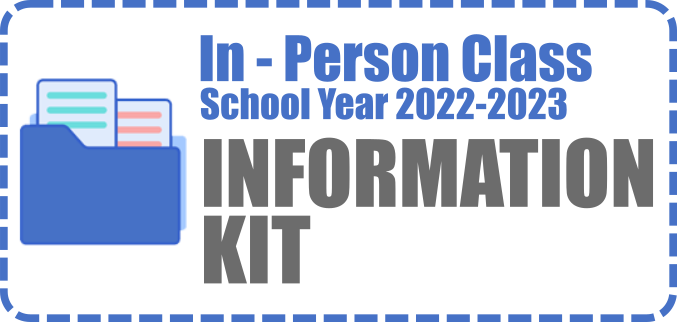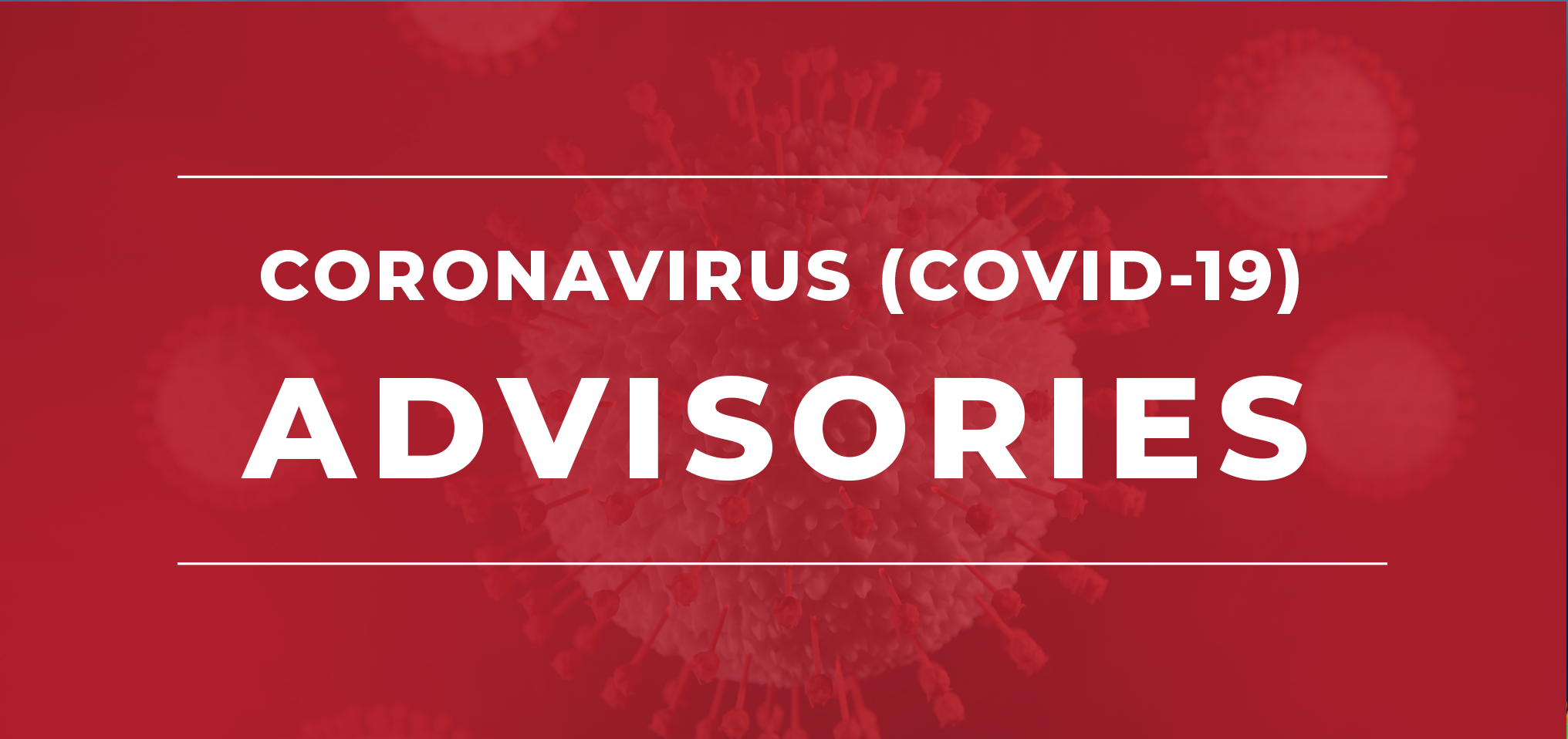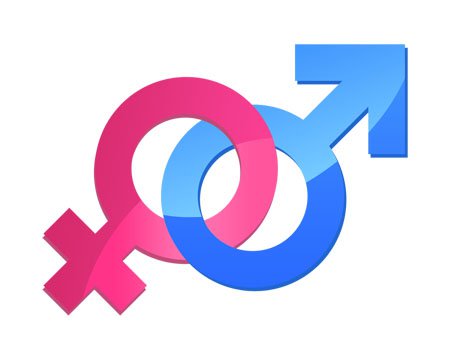Message 2013-2014
- Category: Message
- Hits: 1773
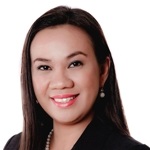
June 10, 2013 marks the official first day in school for all our scholars for this school year 2013-2014.
We are truly glad to see you back in school- our Grade 8, 3rd and 4th year scholars. And with you, we are warmly welcoming the presence of the new members of the Pisay- Western Visayas family, the freshmen who are coming in as our Grade 7 scholars. Please know that it is our joy to have you become part of our exclusive Pisay community. You have been an addition to our pool of deserving scholars of the Filipino people. We acknowledge your giftedness in the areas of science, math and technology. This is a privilege, but also a responsibility to do good in school both, in your academics and behaviour. We desire to develop in you a pursuit of truth, passion for excellence and the commitment to serve God and our country.
For our dear parents of our Grade 7 scholars, we are grateful for the confidence you have given to Pisay-Western Visayas for entrusting your children’s secondary education to us. As we offer the best we can, for your kids in school, we also look forward to keep a strong partnership with you as we ask for your support and active involvement in the many activities and programs of the school.
Last school year, we held our classes in temporary classrooms in the SLRC and laboratories to give way to the repair and rehab of the academic building, particularly the classrooms and the faculty room. But this school year, scholars are going to be back to their classrooms in the academic building. It is our hope that you’ll take care of the school facilities as we invest on making them better for a more conducive learning environment. There is still much to do though to get into that 21st century classroom we dream for you to have soon.
This school year, we’ll rehabilitate our dormitories, construct for completion of our gymnasium, and repair our administration building. But let’s welcome these as blessings/ opportunities to improve our facilities. Admin offices are temporarily transferred to the SLRC building. We are targeting to finish these infrastructure projects before the end of 2013, so we look forward to enjoy this completed infra work upon return after Christmas break. Meanwhile, we are hoping for your understanding as we work on improving our facilities to better serve our scholars.
Also, this school year, we acknowledge that we have two sets of scholars under two seemingly different curricula. Half of the group- our 3rd and 4th year scholars are here to complete their 4-year Pisay scholarship. While the other half- our Grade 7 and 8 scholars are part of the K-to-12 curriculum that requires them to complete Pisay education for 6 years. But this curriculum change transition period has not changed our mission for all our scholars, whether they belong in the old or new curriculum- and that is to prepare and equip you for careers in science and technology. In this very competitive time, we are working keep to our vision of positioning PSHS as the country’s leading science high school.
The WVC is one of the 12 campuses all over the country that operate under one system of governance, and is working to complete its mandate to have 16 campuses in the year 2016.
Here in WVC, this year is our 21st year of operation, being the 3rd oldest campus in the System after the Diliman and the Davao Campus turning 50 and 25 respectively this year 2013.
We are getting older and we would like to get better. Last school year, amidst all the challenges, we have been richly blessed too. We measure our success by the performance of our scholars and the kind of graduates we produce.
This is evidenced by the achievements of our scholars. The school year started with a blast as three of our scholars namely: Ina Mae S. Sison, Vicah Adrienne Villanueva, and Magin Benedict Ferrer won as the Grand Champion in the 1st ASEAN Plus Three Junior Science Odyssey held in Brunei Darussalam last June 10-16, 2012 with 10 Participating Countries including Malaysia, Indonesia, Philippines, China, Korea, Brunei, Darussalam, Vietnam, Thailand, Singapore, Sweden. This July, we’ll be sending another team in Korea for the same competition. Let’s pray for their good performance and success. A long list of winnings of our scholars in local and national competitions, both in Science, Math and Technology area, as well as in Humanities field followed for the rest of the school year. Topping the local competitions won is the Batang Lider award recognized by the Iloilo City government to ms. Beatrice Cuadra, our SA president last SY. The school year was also closed with a bang as Magin Benedict Ferrer won as Grand Champion in the National Chemistry Olympiad last May 2013.
Thanks to our very dedicated teachers who acted as coaches in several competitions on top of their work as competent teachers in the classroom.
Our faculty and staff have similarly pursued excellence in the desire to continuously learn and develop themselves through post graduate degrees and other professional learning opportunities last school year. Ms. Zennifer Oberio, our math and research teacher has been given a full scholarship in the University of Leeds in UK for her Ph.D. degree for giftedness. Mr. Aris Larroder, our Science teacher qualified and went to Tokyo University as a research student under a Mombushu scholarship program. Mr. Jose Vicente Tan, our CS teacher qualified through a competitive selection to attend a short-term training in Malaysia. Mr. Mr. Joseph Simon Madrinan earned his Master of Education degree in Mathematics from the University of the Philippines in the Visayas, and a good number of our faculty are pursuing their Masters and doctorate degrees, with one under a DOST scholarship and others on their own expense. All these I am glad to mention in recognition of the dedication and pursuit for higher and continuing education of the mentors in Pisay WVC. We want to be the best so we could also deliver the best for the best students that we have.
As I enter my 2nd year as campus director, i look forward to more victories amidst challenges. A lot of new things are in store for this school year, and this gives us a sense of excitement as we embrace all these positive possibilities in Western Visayas Campus.
As we welcome school year 2013-2014, let us pool our resources together and work as a team to strengthen the wings of Pisay to make mightier flights. Not by our individual strength and capabilities, but by our collaborative efforts, and by the grace of the Mighty Hand above who make all things happen and possible, we look forward to another successful school year , in the process of nurturing the great minds and hearts of our scholars placed under our care in the Western Visayas Campus.
The 6-Year PSHS Curriculum
- Category: Special Curriculum
- Hits: 10255
Introduction
The “Enhanced Basic Education Act of 2013″ establishes the new K-12 Basic Education Program of the Philippines. The act declares:
It is the “policy of the State that every graduate of basic education shall be an empowered individual who has learned, through a program that is rooted on sound educational principles and geared towards excellence, the foundations for learning throughout life, the competence to engage in work and be productive, the ability to coexist in fruitful harmony with local and global communities, the capability to engage in autonomous, creative, and critical thinking, and the capacity and willingness to transform others and one’s self.
For this purpose, the State shall create a functional basic education system that will develop productive and responsible citizens equipped with the essential competencies, skills and values for both life-long learning and employment.”
The Act adds two years, Grade 11 and 12, to the current National Secondary Education Program. The 12-year basic education is anchored on the Bologna Accord which requires 12 years of education for university admission and practice of one’s profession in European countries, and the Washington Accord which prescribes 12 years of basic education as an entry to recognition of engineering professionals (Department of Education, 2010).
In the wake of ASEAN 2015, which envisions the coming together of ASEAN countries as one, borderless economic community by 2015, the Department of Science and Technology (DOST) and other government agencies have identified a number of priority areas to help address the need to increase human resource development, and research and development activities in preparation for 2015 (see e.g. NRCP, 2011; Villacorta, 2012). Science and technology are seen by government as important vehicles that can support the thrust to achieve a Philippine economy that is globally competitive and collaborative. Educational and professional qualifications will need to meet standards set with our Asian neighbors and by the rest of the world.
In anticipation of these changes in October 2011, the PSHS Board of Trustees (BOT) instructed the PSHS System Executive Director, Dr. Josette T. Biyo to take steps towards preparing a 6-year curriculum for PSHS in response to the K to 12 Basic Education Program of the government. Thus, development of the new 6-year PSHS Curriculum began.
Curriculum development commenced with the creation of the PSHS Curriculum Review Committee in October 2011. Initial discussions focused on the curriculum framework, and through consultations with various stakeholders, the PSHS Executive Committee and the Curriculum Review Committee drafted the 6-Year Curriculum Framework. A series of curriculum write-shops particularly for Grades 7 and 8 were also held. The participants included the Executive Committee, Curriculum Committee, faculty, curriculum and subject experts. The policy on Alternative Learning Activities was also drafted to supplement the proposed curriculum. In May 2012, the Board of Trustees approved the 6-Year Curriculum Framework and the revised Grade 7 Curriculum in connection with the implementation of the K to 12 Program, and was subsequently implemented in the school year 2012-2013.
Teacher training and workshops for the preparation of instructional materials for the new curriculum continues up to this day. In the conduct of the curriculum workshops, external curriculum and subject area experts (some of whom are PSHS alumni) were invited to guide the PSHS teachers and to critique their work. The Campus Directors regularly joined the workshops to provide direction to the teacher-participants.
In 2012, the Campus Directors and key officials of the Office of the Executive Director visited science-oriented schools in Taiwan and Korea for curriculum benchmarking purposes. They also attended a 4-week leadership and education program at Queensland University of Technology in Australia in 2013. As an offshoot of the training program, a team of seven campus directors and OED staff attended the Strengthening Science, Technology, Engineering and Mathematics (STEM) in the Philippine Education System from April to May 2014 in Australia. The team worked on the improvement of the 6-year curriculum with the assistance of Australian experts and through benchmarking with schools. The Australian Curriculum and the International Baccalaureate Program significantly influenced the PSHS Curriculum.
The 6-Year PSHS Curriculum
The 6-Year PSHS Curriculum describes what scholars should learn as they progress through their six years of schooling. It sets out essential knowledge, understanding, skills and capabilities that prepare students to be successful in an Science and Technology (S&T) career.
The aim of the PSHS Curriculum is to nurture scholars to become holistic individuals who are humanistic in spirit, global in perspective, patriotic in orientation, and well-prepared to pursue a STEM career which will contribute to nation-building. Through a program that is rooted in sound educational principles and geared towards excellence, it is anticipated that PSHS graduates are empowered 21st century learners with general capabilities that will prepare them to confidently pursue STEM courses as well as to become active and informed global citizens.
PSHS scholars are expected to learn the foundations for life-long learning; to develop the competence to engage in work and be productive; to gain the ability to coexist in fruitful harmony with local and global communities; to engage in critical and creative thinking; and to transform oneself and others in becoming agents of change for the betterment of society.
The general capabilities encompass the knowledge, skills, behaviors and dispositions that, together with curriculum content in various subjects, and the values they embrace, will assist scholars to be holistically-developed, globally oriented, and well-prepared to pursue STEM careers, and contribute to nation-building.
Figure 1 encapsulates the 6-Year PSHS Curriculum. It describes the core components of the curriculum namely: learner profile, general capabilities, and academic and co-curricular programs. Figure 2 shows the updated subject matrix.

Program Beneficiaries
- Category: About PSHS Western Visayas
- Hits: 2565
Program Beneficiaries
PSHS System primarily provide services to Filipino youths who show remarkable interest in the fields of Science and great potential for a career in Science and Technology. Through outreach programs, the System works with select disadvantaged communities. It is through such interventions that PSHS System scholars are immersed into the real need for solutions to poverty through Science and Technology.


